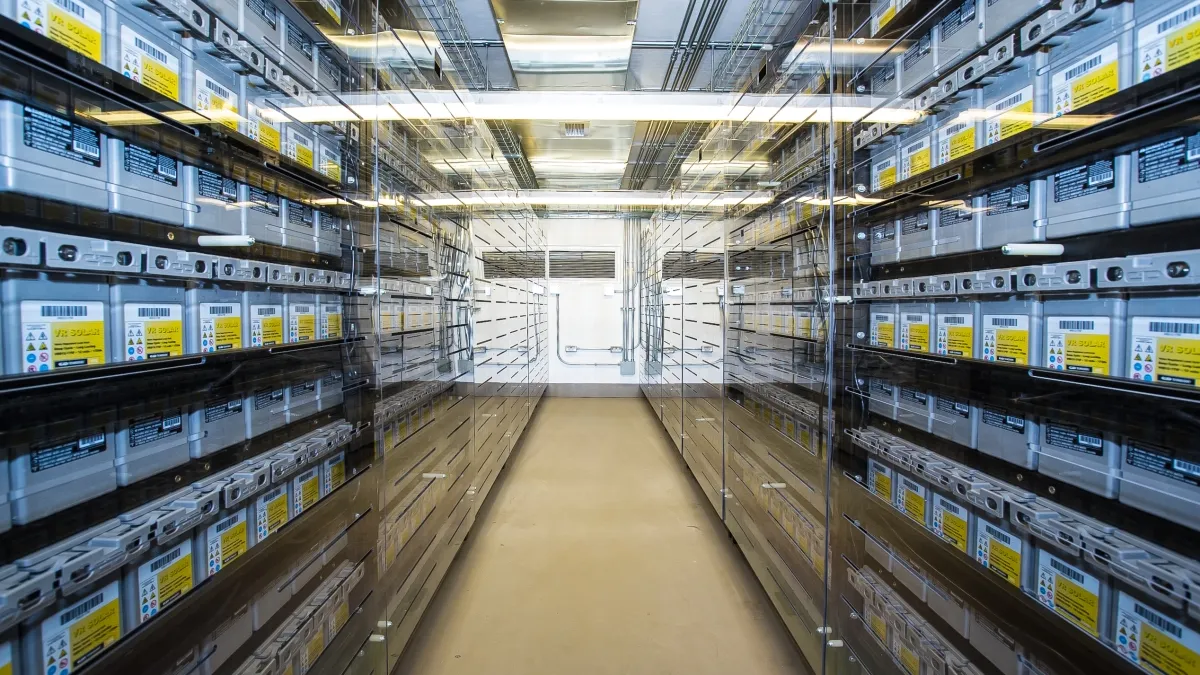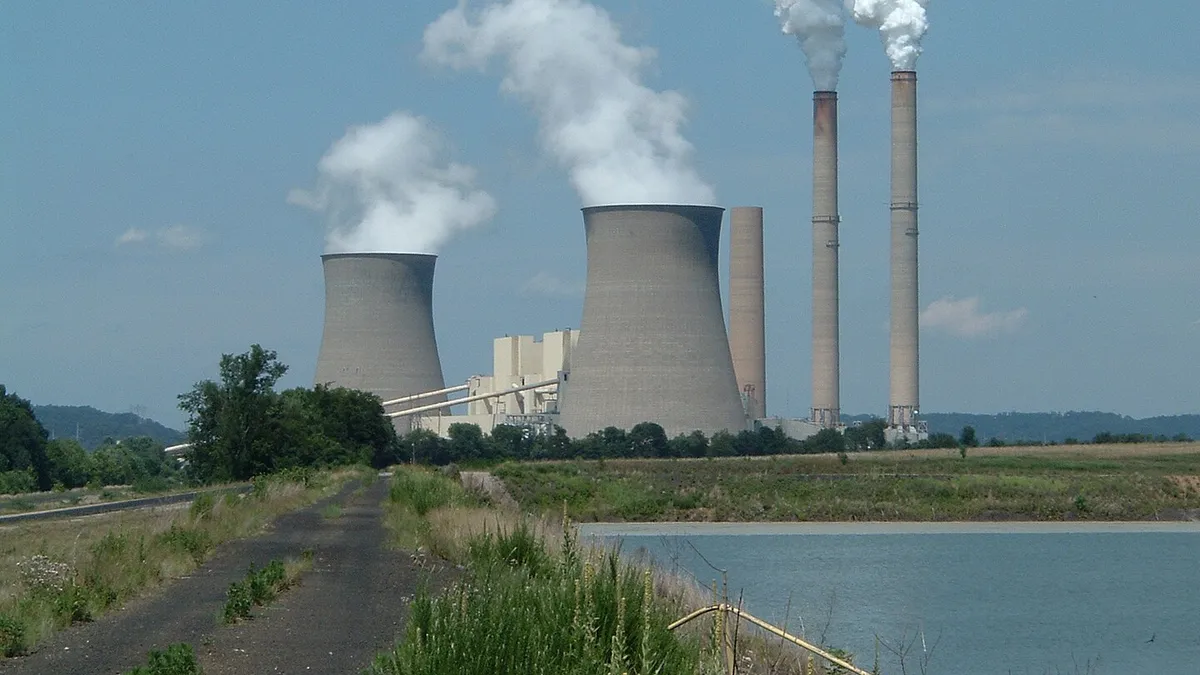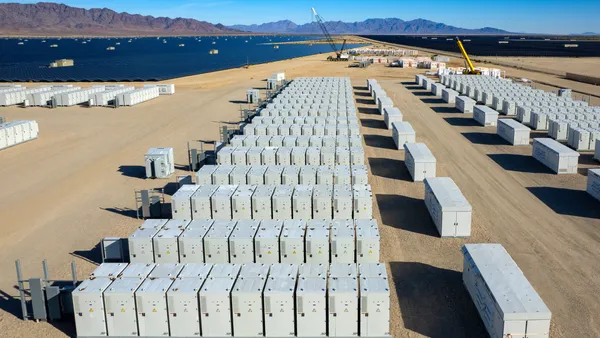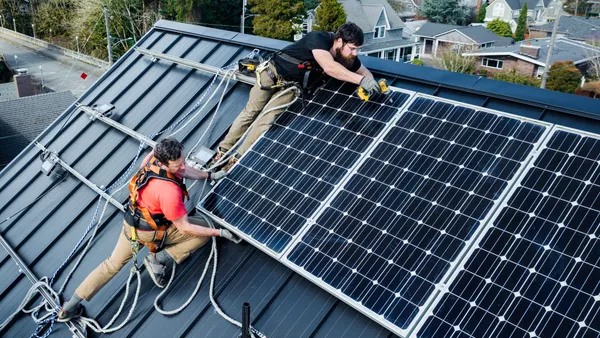Dive Brief:
- NEC Energy Solutions will develop a 2 MW, 3.9 MWh battery for Sterling Municipal Light Department, aimed at boosting grid resiliency against storm-related outages, PV Magazine reports.
- The project is partially funded by a $1.5 million grant from the Massachusetts Department of Energy Resources (DOER), and is expected to be online in December.
- Sterling's municipal power provider has been aggressive in pursuing solar energy, and says it is now ranked seventh in solar capacity per capita in the nation.
Dive Insight:
Months after Massachusetts agency outlined steps to achieve 600 MW of energy storage, a small town in the state wants to build New England's biggest energy storage project—which would also be the region's first utility scale project.
Sterling Municipal wants to build on its installed solar capacity by using battery storage to lower peak demand charges as well as keep the lights on.
The lithium ion battery system will store solar energy to provide energy resiliency to critical town departments including the police, dispatch, and fire service. It will also provide transmission capacity charge savings from reducing peak demand, according to a description of the project.
“This project is the largest of its kind in New England," said Bud Collins, CEO of NEC Energy Solution. Energy storage initiatives through the Department of Energy Resources "could make Massachusetts one of the
largest energy storage markets in the world."
The turn-key system will be contained in a single 53-foot container housing 3.9 MWh of lithium ion batteries, a 2 MW power conversion system, and NEC's control software. The Clean Energy States Alliance is also providing technical assistance, as is the Clean Energy Group’s Resilient Power Project through a grant from the Barr Foundation.
Massachusetts has taken steps to set itself up as a leader in energy storage, paving the way for developers to find markets other than California and Hawaii. The state began opening up avenues for a broader use of storage last year when Gov. Charlie Baker (R) announced the Energy Storage Initiative (ESI). Further solidifying its commitment, the legislature passed a bill in August that could make the state one of only three in the nation to have an energy storage mandate.













